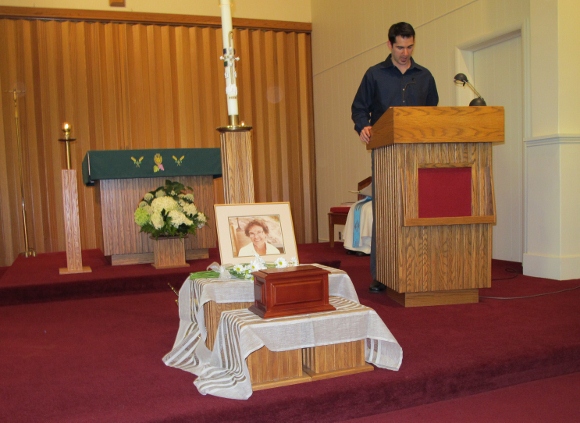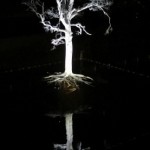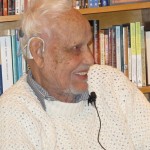
By Barbara Falconer Newhall My brothers had charged me with planning the memorial service for my mother. I was a religion writer, after all, and of the three of us the only churchgoer. After my father died, my mother had returned to the Catholic church of her girlhood, so we made plans to hold a memorial mass at the tiny St. Vincent Catholic Church in Pentwater, Michigan, where she had spent summers as a child. The priest sent along a copy of the liturgy, and I asked my brothers and the Millennial grandchildren — with some trepidation — if they’d like to participate in the service. There were the Prayers of the Faithful to be read, as well as two passages from scripture, and the bread and the wine to be carried to the altar. My trepidation was not unfounded. My nephew, an evangelical Christian, jumped at the chance to read from Romans. My son and daughter, who grew up in an Episcopal Church and are now an agnostic (an apatheist to be more precise) and a beginner Buddhist respectively, agreed to take on Isaiah and the Prayers of the Faithful.  But my brothers and some of the grandchildren were uneasy at the thought of standing up in front of a bunch of people to read from a document they didn’t believe in. One granddaughter thought she might be able to read a passage, but only if it didn’t mention God. Exasperated, I blasted out an email. “It’s not necessary to ‘believe’ the scriptures!” I declared. “‘Belief’ is seriously overrated!” Fortunately, between my nephew and my own children, I had just enough readers to fill all the reading slots, so I offered the two “non-believer” granddaughters the wordless roles of carrying the bread and wine to the altar. They accepted happily. What I didn’t tell my nieces was that, to my mind, while the offering of the bread and wine doesn’t involve words of assent to – belief in – any kind of doctrine, the act does reflect another kind of belief, the faith and trust kind. It is the bringing of a hopeful heart to that which is. (Or as Christians would put it, to God.) I believe that my “unbelieving” nieces are not unbelieving at all. They are full of trust and love and light. They showed up for their grandmother. They generously carried the bread and the wine to the altar of a tradition they neither understood nor subscribed to. As I see it, they did all this with a great deal of hope — and belief. For more on this topic, read about Harvey Cox, who asserts that you don’t have to believe to be a Christian — not any more. Are you a Somethingist? Find out at “They Don’t Believe in God, but They Do Believe in Something” A version of this post first appeared on BarbaraFalconerNewhall.com, where Barbara writes about her life as an empty nester — and her rocky spiritual journey. Her new book from Patheos Press is “Wrestling with God: Stories of Doubt and Faith.”
But my brothers and some of the grandchildren were uneasy at the thought of standing up in front of a bunch of people to read from a document they didn’t believe in. One granddaughter thought she might be able to read a passage, but only if it didn’t mention God. Exasperated, I blasted out an email. “It’s not necessary to ‘believe’ the scriptures!” I declared. “‘Belief’ is seriously overrated!” Fortunately, between my nephew and my own children, I had just enough readers to fill all the reading slots, so I offered the two “non-believer” granddaughters the wordless roles of carrying the bread and wine to the altar. They accepted happily. What I didn’t tell my nieces was that, to my mind, while the offering of the bread and wine doesn’t involve words of assent to – belief in – any kind of doctrine, the act does reflect another kind of belief, the faith and trust kind. It is the bringing of a hopeful heart to that which is. (Or as Christians would put it, to God.) I believe that my “unbelieving” nieces are not unbelieving at all. They are full of trust and love and light. They showed up for their grandmother. They generously carried the bread and the wine to the altar of a tradition they neither understood nor subscribed to. As I see it, they did all this with a great deal of hope — and belief. For more on this topic, read about Harvey Cox, who asserts that you don’t have to believe to be a Christian — not any more. Are you a Somethingist? Find out at “They Don’t Believe in God, but They Do Believe in Something” A version of this post first appeared on BarbaraFalconerNewhall.com, where Barbara writes about her life as an empty nester — and her rocky spiritual journey. Her new book from Patheos Press is “Wrestling with God: Stories of Doubt and Faith.”












